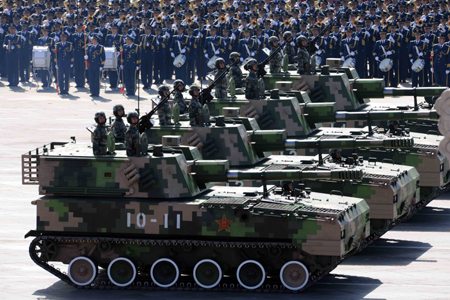China faced two potentially serious internal challenges to its stability in early 2012. A village uprising in Wukan, Guangdong, turned into an unplanned democracy experiment, as the central government uncharacteristically responded to local grievances by allowing the villagers to hold elections in February to replace the corrupt officials against whom their protests had been directed. With protests against local officials commonplace in rural China, the decision to accede to the Wukan people’s demands was therefore a significant gamble for Beijing, since it could potentially encourage even more protests nationwide.
The situation in Tibet also deteriorated, as increasing numbers of individuals, and in most cases monks or nuns, resorted to self-immolation in protest against Beijing’s rule: six Tibetans killed themselves in this way in the space of a week in mid-February. With Tibet’s stability becoming fragile, the government sacked a number of officials and deployed large numbers of additional military personnel to the region in an attempt to keep a lid on further protests and avoid any repeat of the 2008 uprising.
The Chinese government is especially keen to maintain domestic stability in what is a politically crucial year for the Communist Party. The 18th National People’s Congress (NPC) is due to take place in the autumn, and a new set of senior leaders will be installed at the congress for the first time in a decade. An internal security crisis could therefore have profound implications for the leadership handover, potentially altering the make-up of the new politburo and therefore China’s political direction.
The man widely expected to assume the roles of president and general secretary at the NPC, Vice President Xi Jinping, travelled to the US in February on what was an important diplomatic visit in light of tense relations between Washington and Beijing. China had been critical of a new US defence policy, announced in early 2012, that outlined US plans to increase its focus on the Asia-Pacific region, with Beijing claiming that the new policy was focused on China’s containment. Xi’s visit was therefore regarded as a prime opportunity for the US government to recalibrate its relationship with China by establishing a good rapport with the country’s next leader. However, during Xi’s visit reports emerged that China may be planning to double its defence budget by 2015, and this may have altered the tone of the discussions.
After what proved a testing 2011 for China diplomatically as a result of disputes over the South China Sea, Beijing also made further progress on restoring cordial ties with some of its Asian neighbors, especially Vietnam, whose foreign minister, Pham Binh Minh, visited Beijing in mid-February to cement improvements in bilateral relations since last year’s angry confrontations. Progress was also made on relations with India. In January, the two countries agreed to establish a mechanism to deal with disputes along their shared border, which has been a dangerous flashpoint in the past; and this was followed up in February by the visit of Indian external affairs minister SM Krishna, who met with a series of senior government officials.
However, China’s stance on some of the most important global issues of early 2012 may have harmed its standing in other quarters. Beijing’s decision, taken in tandem with Russia, to veto a UN resolution denouncing Syrian President Bashar al-Assad for state violence against regime opponents was greeted with fury in some sections of the international community. Similarly, China’s refusal to cut back on Iranian oil imports, despite the appeals of the US-led bloc of country’s attempting to put a stop to Tehran’s nuclear programme through economic sanctions, enabled China’s critics to argue that the country was failing to live up to its responsibilities as a leading member of the international community. While reaffirming China’s opposition to Iranian efforts to acquire a nuclear weapons, Chinese Premier Wen Jiabao said in January that China’s trading relationship with Iran remained legitimate. Iranian President Mahmoud Ahmadinejad is due to visit China in March.
In what could prove a significant development in terms of China’s military strategy, the Seychelles announced in December 2011 that it was inviting China to establish a military base on its territory. Though Beijing has yet to respond formally to the offer, it is likely to accept in order to expand its strategic depth in the Indian Ocean Region (IOR). China also boosted defence ties with Bangladesh, another key IOR ally, by agreeing in November to supply the Bangladesh Air Force with 16 F-7 fighter aircraft. Dhaka is expected to procure more Chinese military equipment in the coming months, including naval frigates.










